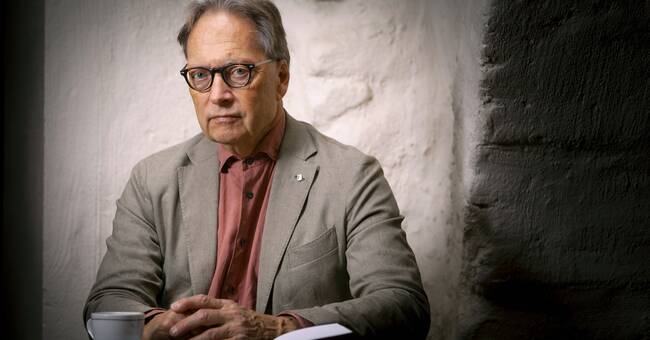What should one call what Horace Engdahl writes?
Diary entry, aphorism, essay?
I try with essay, that is, something that transforms a thought into text during the writing process, which examines the basics of one's own thinking and dares to break with what the present holds to be true.
Ett klassiskt exempel är 1500-talsförfattaren Montaignes essäer som gett hela genren dess namn. När han skriver om kannibalism har han läst om ”barbariska seder” i det nyupptäckta Amerika, men frågar sig om de verkligen är värre än den då ännu aktiva europeiska inkvisitionen, kannibalism är kanske till och med mer civiliserad? Han har inte svaret, det är tankeprocessen som är det viktiga.
Engdahl presenterar i sina korta texter
ett jag som har kommit att välja en livsföring som radikalt skiljer sig från den ”normala samhällsmedborgaren”, vad det nu är. Han lever som Montaigne i ett rum bland sina böcker och tittar då och då ned över samtidsvimlet från sin högt belägna balkong. Därifrån ser han journalister han inte längre läser, han ser ny puritanism tränga ut en gångens tid ”skojiga” frigjordhet, han hör en kör av röster ropa skandal och därigenom göra upprörande undantag av sånt som inträffar ”oavbrutet”.
Inside his room he reads and writes down short, pregnant and always thought-provoking characteristics of different authors' peculiarities, he is a thoroughly educated reader with an ear for overtones and undertones, and he conveys his findings with an address that takes the recipient's interest and curiosity for given.
No balcony perspective there and it's encouraging.
But he is seldom unsure
of his own judgment, he examines, to now reconnect with the father of the essence Montaigne, not the foundations of his own thinking;
he does not write essays, but aphorisms that establish truths and doctrines rather than test them.
They can swell to three sides but also fit in a row: "Artists are work-shy who do not dare to become criminals."
Engdahl himself may be sure of his case, it can still arouse fruitful doubt in his readers.
Den lilla volymen rymmer också några texter som har ett annat tonfall, personligare, innerligare, mer givande: Ett kärleksfullt porträtt av en far och två texter om musik, Bachs Matteuspassion och Beethovens opus 101, sonaten i A-dur, som gett boken dess titel. Jag läser dem som lätt förklädda självbiografier: De musikaliska verken har förändrat författarens liv, öppnat ett rum för honom att växa, utvecklas och mogna i. Genom musiken har han fått likasinnade vänner, levande såväl som döda, att lyssna och läsa med.
His description of
how for many years he struggles with Beethoven's sonata, reads the score, plays, before he seems to understand it correctly, can be applied to any art acquisition: some books must be read many times before sharing their secrets.
And Engdahl's book made me listen to Beethoven's sonata.
I can not remember hearing it before and can not say that I understood it, but as I said, it takes time.

